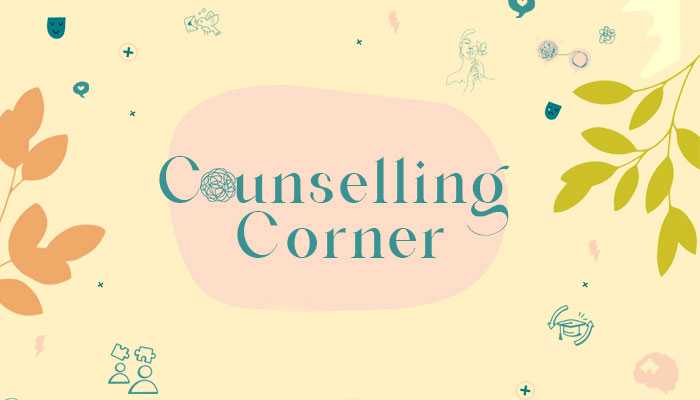'How should I deal with my toxic, abusive wife?'
"Most of the time, she taunts, blames, and disrespects me," says a disappointed husband
May 15, 2024
Hi Haya,
It has been around 10 years since I got married. My wife, in nature, is very hardworking and nice to the kids. I've seen very few mothers who take care of their kids in such a good way. But to me, she had been extremely toxic. Most of the time, she taunts, blames, and disrespects me.
I am eight years elder to her. She stops me from meeting my extremely close friends, doesn't want me to spend on others at all and questions a lot if I go with my friends. She only wants me to take care of the kids after coming home from work.
If I react to the way she treats me, she treats me in a bad way. She also resorts to physical violence and raises her hand on me. I worked a lot on her during the last 10 years and she has improved a little. But the issues are still there. Could you please give me some advice on how to handle this situation?
— A disappointed husband

Dear disappointed husband,
I'm deeply sorry to hear about the challenges you're facing in your marriage. It's evident that you're enduring a difficult and distressing situation at home, and I commend you for seeking guidance and support.
First and foremost, your safety and well-being are of utmost importance. No one should have to endure emotional or physical abuse in any relationship. It's concerning to hear that you're experiencing taunting, disrespect and even physical violence from your wife. These behaviours can have profound and lasting effects on your mental and emotional health.
Let's take a closer look at your situation.
The understanding that people's behaviour reflects how they feel about themselves. Their inner world. While your wife may excel in her role as a mother, her behaviour towards you suggests deeper issues that need to be addressed. Its great that you’ve worked on her in the last 10 years and she has improved a little, but you also need to know that we can support people in their journeys but we cannot do the work for anyone. She would need to work on herself and you can support her.
A relationship is made of two adults who are responsible for themselves and come together in wholeness, recognising that healthy relationships require effort and commitment from both partners, and positive change can only occur when both individuals are willing to work towards it.
Communication is fundamental in any relationship. I encourage you to have an open and honest conversation with your wife about how her behaviour is impacting you and the relationship. Setting aside a time to talk when both of you are calm and can express yourselves without interruptions is crucial. It's important to express your feelings assertively, using "I" statements to convey how her actions affect you emotionally and physically.
Exploring the underlying reasons behind your wife's behaviour is also important. Is she feeling overwhelmed or stressed? Are there unresolved conflicts or resentments within the relationship?
Creating space within the relationship and encouraging her to seek individual therapy or couples counselling can provide a safe space to address these issues and work towards resolution.
While you're making efforts to improve the relationship, it's essential to consider your own individual role within it, and to work on the “I”. Where are you in this relationship? You need to assess the role you play in your suffering.
A key thing to understand is that we can be empathetic towards someone’s struggles, but empathy without having any boundaries is self-destruction and self-abandonment.
Boundaries are what we allow and do not allow. Setting boundaries is crucial for your own wellbeing, and you need to feel well emotionally physically and mentally to show up in the same way in your relationship.
Assessing your boundaries, understanding your needs and understanding what behaviour you're willing to accept is crucial for your well-being. Setting and enforcing boundaries consistently is necessary to ensure your needs are met and respected.
I currently do not sense any boundaries.
I would encourage you to clearly communicate your needs and expectations regarding mutual respect, communication, and decision-making in the relationship and also explore what happens when your boundaries are not maintained.
Truth is, relationships are a mirror to ourselves. Our relationship with others is a reflection to the relationships we have with ourselves and they are an invitation for us to explore and understand our inner world. While we don’t have control another’s behaviour, we do have control on ourselves.
Don’t forget to take care of yourself and prioritise self-care. Seek support from friends, family, and work with a therapist who can provide guidance and encouragement as you navigate through these difficulties.
In conclusion, addressing the issues in your marriage requires both understanding and action. By prioritising communication, setting boundaries, and seeking support, you can begin to work towards a healthier and more fulfilling relationship.
Remember that you're not alone, and there are resources available to help you through this difficult time and you deserve to be treated with kindness, dignity, and respect in your relationship, as does anybody else.
Good luck!
Haya

Haya Malik is a psychotherapist, Neuro-Linguistic Programming (NLP) practitioner, corporate well-being strategist and trainer with expertise in creating organisational cultures focused on well-being and raising awareness around mental health.
Send her your questions to [email protected]
Note: The advice and opinions above are those of the author and specific to the query. We strongly recommend our readers consult relevant experts or professionals for personalised advice and solutions. The author and Geo.tv do not assume any responsibility for the consequences of actions taken based on the information provided herein. All published pieces are subject to editing to enhance grammar and clarity.













